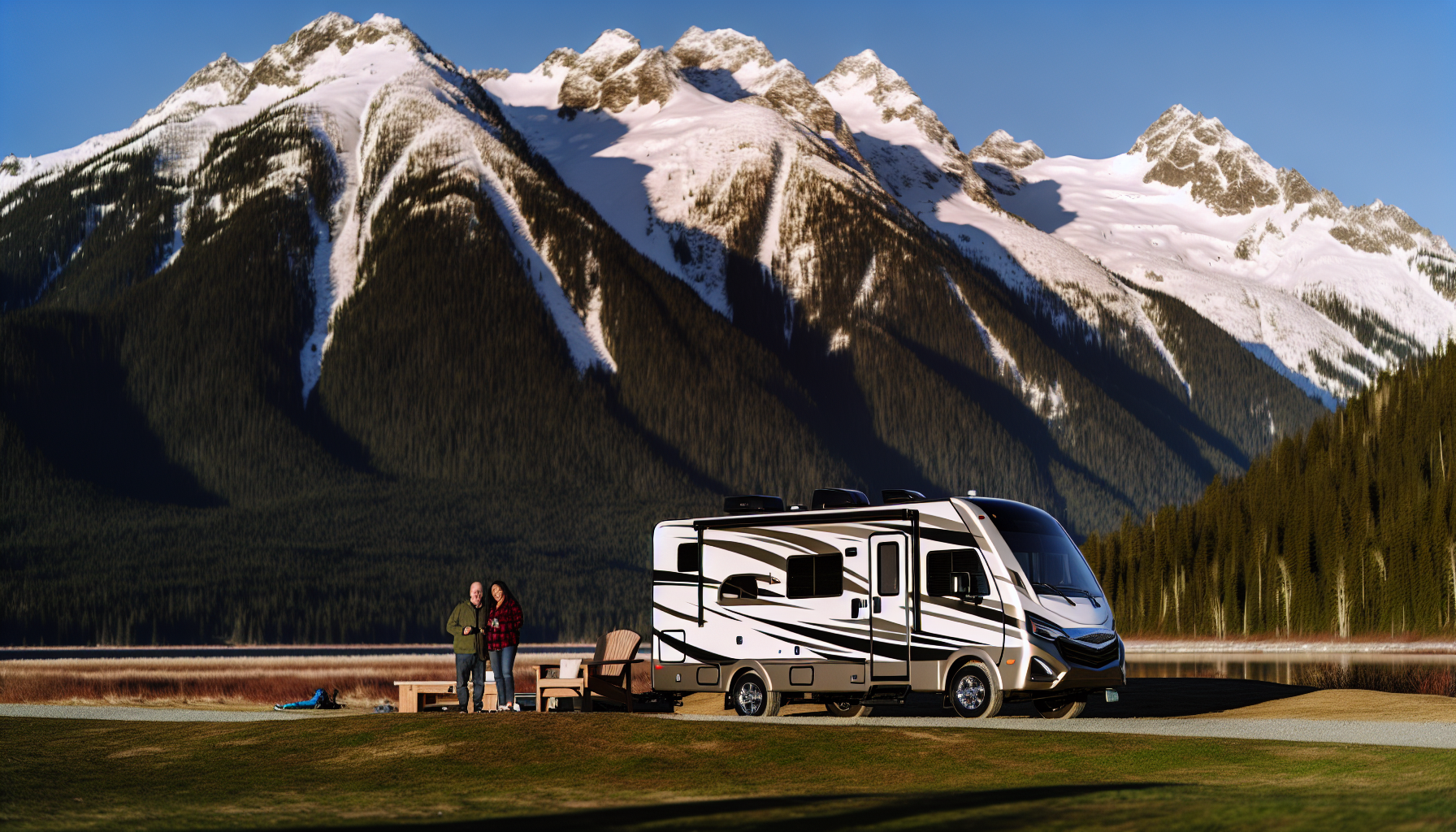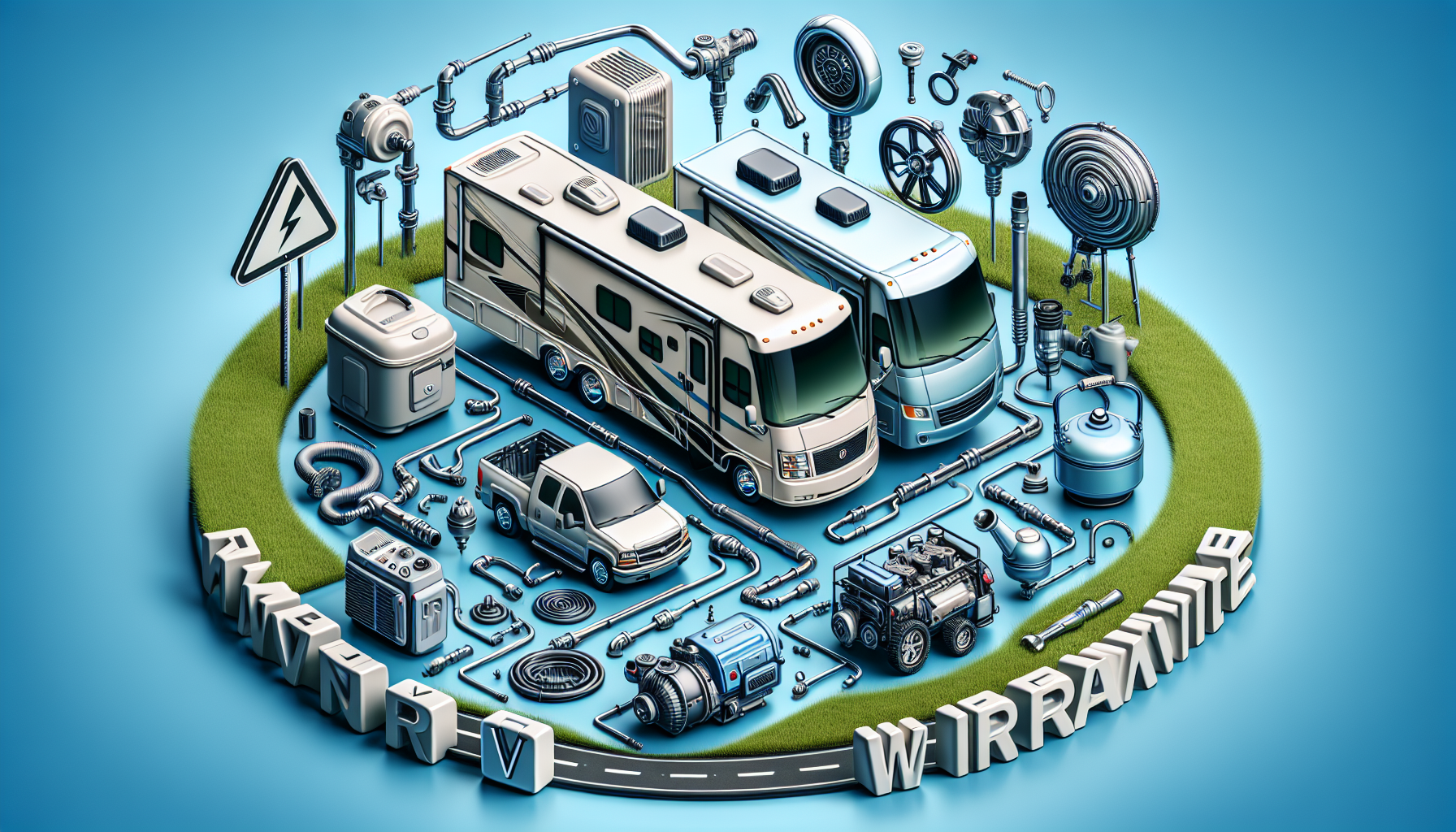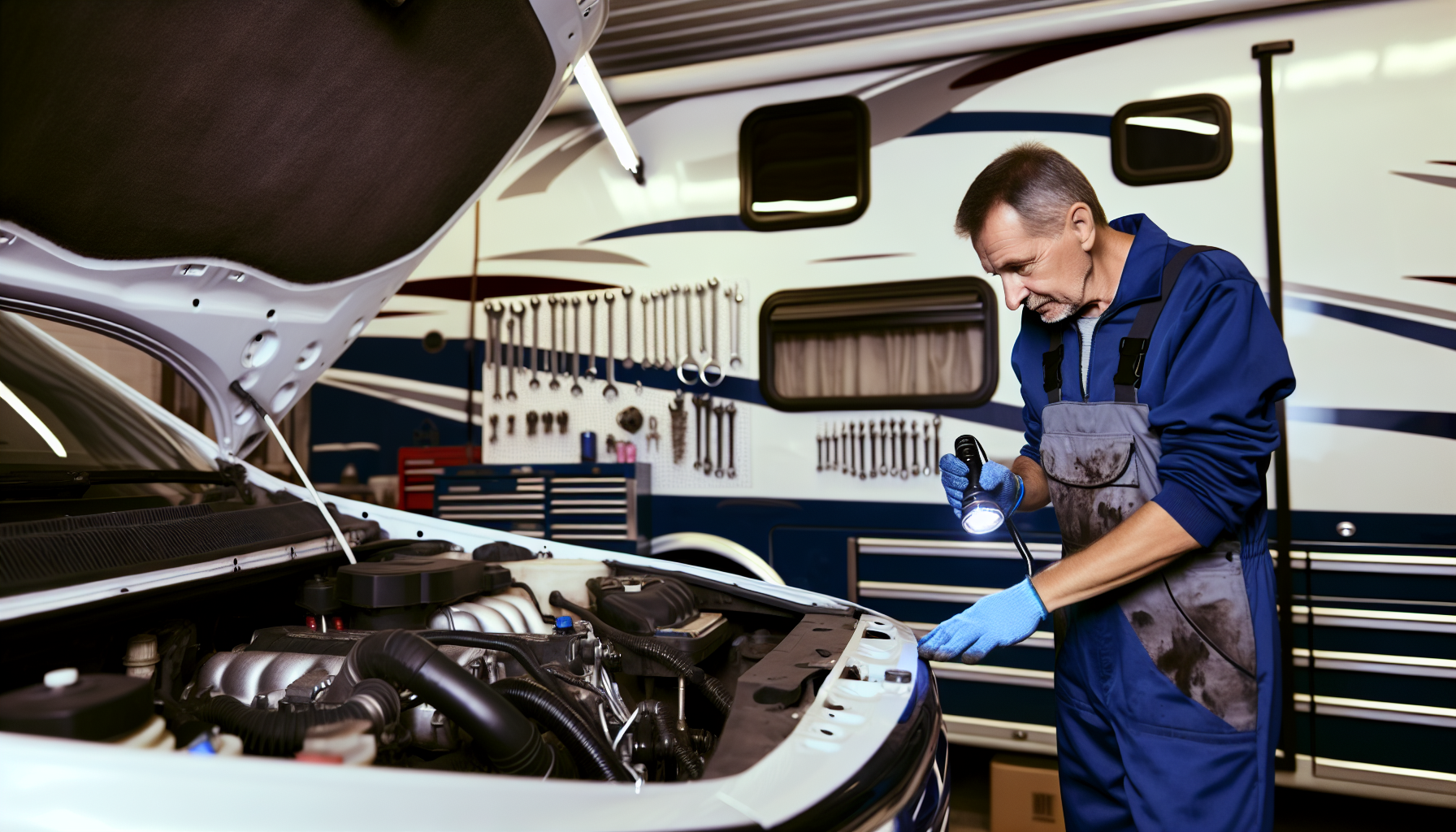Ever wondered what is an RV warranty? Simply put, it’s a plan that covers certain costs if your recreational vehicle encounters mechanical failures. Unlike insurance, an RV warranty specifically caters to the inner workings of your RV, ensuring you’re not out of pocket if systems and components go awry. This article will give you a clear understanding of RV warranties, offering guidance on what they cover, how they work, and why they may be a crucial part of your RV ownership.
Key Takeaways
- An RV warranty offers protection against mechanical failures and wear but is not a substitute for RV insurance, which covers accidents and damage from negligence.
- Extended service contracts provide comprehensive protection after the manufacturer warranty period and can be customized, although they may be more costly up front compared to potential benefits.
- Choosing a reliable RV warranty provider involves researching their financial stability, customer service quality, and understanding the terms of coverage for effective claims processing and peace of mind.
Decoding RV Warranty Basics

An RV warranty, in essence, is a form of protection against mechanical failures and certain types of wear and tear, applicable to both new and used RVs. This coverage extends to components and systems that may malfunction due to regular use, misuse, or old age. It’s akin to a safety net, absorbing the financial shock of unexpected RV repairs.
However, bear in mind that an RV warranty does not act as a comprehensive insurance policy. While an RV warranty focuses on mechanical failures and wear and tear, RV insurance covers a wider spectrum of risks, such as accidents and damage resulting from negligence. Therefore, RV owners need to familiarize themselves with the warranty coverage offered for specific mechanical items and components within the RV.
An RV warranty, though comprehensive, has its limitations. It does not cover accidents, damages resulting from neglect or improper maintenance, or failures caused by the owner’s actions. Thus, RV owners should carefully review the warranty contract before signing, understanding the items not covered to avoid unexpected surprises.
The Scope of RV Warranty Coverage

Most RV warranties provide coverage for components that fail under normal use. This coverage typically lasts for the duration of the stated warranty period. The coverage spectrum is broad, encapsulating a variety of components within your mobile abode.
Typically, an RV warranty includes coverage for elements such as:
- RV slides
- Appliances
- Generator
- Plumbing
- Structural components like windows, skylights, walls, and floors
- Exterior features
- Electric and/or hydraulic jacks
- Motorhome powertrain components
However, keep in mind that the specifics can differ, and the scope of coverage largely depends on the warranty provider and the chosen warranty plan.
Exclusions Worth Noting
While RV warranties offer comprehensive coverage, they inevitably contain exclusions. These exclusions outline certain damages and service needs that are not covered under the warranty.
Aesthetic items and physical damage, for instance, do not fall under the coverage umbrella of RV warranties. These areas are typically insured under RV insurance policies. Additionally, RV warranties do not cover maintenance services, which are the responsibility of the RV owner. Hence, it’s advisable to read the fine print and understand the exclusions when choosing an RV warranty.
Manufacturer vs Extended Service Contracts

Another vital aspect to understand in the realm of RV warranties is the difference between manufacturer warranties and extended service contracts. Manufacturer warranties typically last 1-3 years from the RV’s build date and cover defects in materials or workmanship. However, they are generally not transferable to a new owner.
On the other hand, extended service contracts are additional paid contracts that kick in once the manufacturer’s warranty expires. They offer coverage in inclusionary or exclusionary formats, with the latter often providing more comprehensive coverage. These contracts specify what is not covered, thus presenting the highest level of coverage. While Coach Only contracts exclude engine and powertrain, Powertrain Only excludes all coach components. The cost of extended service contracts can vary, and those purchased through dealerships may be pricier, especially if financed, compared to third-party contracts.
Why Consider an Extended RV Warranty?
Extended warranties offer longer protection than manufacturer warranties and can be tailored to cover items not included in the manufacturer’s warranty. So why should you consider getting one?
Purchasing an extended warranty early in an RV’s life can ensure continuous protection as the manufacturer’s warranty expires. This can be more cost-effective in the long term as it provides a safeguard against unexpected repair costs, offering owners a sense of financial security.
Furthermore, extended RV warranties are designed to cover the costs of mechanical failures, creating a comprehensive protection plan beyond what the manufacturer’s warranty provides. This makes them particularly valuable for full-time RV users or those without a dedicated repair fund, despite the potential of paying more for the warranty than the received benefits.
Selecting a Reliable Warranty Provider

Choosing a reliable warranty provider is akin to choosing a trustworthy travel companion. You want someone reliable, transparent, and responsive. And just like a travel companion, a warranty provider should have a solid financial base to ensure claims will be fulfilled even if the provider encounters issues. Analysing insurance carriers’ rankings, such as A+ or B-, through agencies like AM Best can provide insights into the financial stability of the RV warranty company.
A reliable warranty provider, often working closely with an insurance company:
- Focuses on education and customer experience
- Offers support through an internal claims staff during the claims process
- Provides national coverage and has a dedicated customer service department
- Has positive online reviews, community opinions, and ratings from organizations such as the Better Business Bureau
- Has a strong industry history and longevity, indicating reliability and the ability to handle significant repairs when needed, including those covered by a manufacturer warranty
- Is among the top warranty companies in the market
Finally, one needs to review the terms and conditions of the warranty provider to fully understand the coverage levels, costs, and available service options. A warranty isn’t just a document; it’s a commitment. And understanding the commitment you’re entering into is the first step towards a worry-free RV life.
The Financial Angle: Costs and Value Analysis
RV warranties aren’t a one-size-fits-all solution, and neither are their costs. An RV warranty can cost between $1,000 to $20,000 annually, reflecting a wide range of prices driven by factors including:
- The RV’s age
- Desired coverage
- Provider
- Coverage duration
The type of used RV has a substantial impact on the warranty cost, with motorhomes, especially Class A, incurring higher costs due to their complex mechanical and coach components.
But what’s the value behind these costs? The value of an RV warranty lies in the financial protection it offers against costly repairs. Extended service contracts, in particular, can be invaluable for full-time RV users or those without a dedicated repair fund, despite the potential of paying more for the warranty than the received benefits.
Calculating Your Investment
When looking into an RV warranty, it is important not to focus solely on the price tag. Warranty providers calculate RV warranty pricing based on:
- The RV’s type, make, model, year, and mileage
- Coverage options
- Service fees
- Deductibles
- The projected cost of repairs
The cost of warranties is also influenced by the markup applied by the insurance provider, which varies based on their individual pricing strategies.
Therefore, RV owners should factor in the total investment of the warranty plan. This includes the sum of the warranty purchase price and anticipated out-of-pocket expenses during repairs. This gives a more accurate picture of the overall value for money.
Understanding the Claims Process
The claims process might seem complex at first, but it becomes simpler with a bit of understanding. Understanding the claims process is key for timely and effective use of the RV warranty, with a special emphasis on the role of licensed repair facilities.
Filing a warranty claim typically involves the following steps:
- Verify what is covered by the warranty.
- Take the RV to a qualified licensed repair facility.
- Obtain pre-authorization from the warranty provider before any repair work begins.
A streamlined procedure that offers simplicity and clarity to the RV owner is critical for an easy claims process.
Insights into Extended Warranty Add-Ons
Extended warranties aren’t just about covering repair costs; they also come with a host of add-ons that can enhance your RVing experience. These add-ons often include additional benefits such as roadside assistance, providing emergency support to RVers.
With the flexibility to choose any licensed repair facility or mobile mechanic in the United States or Canada, extended warranties provide convenient options for covered repairs. ARW’s coverage for mobile RV mechanic services includes up to $500 per issue, which is beneficial for multiple visits by the mechanic. Investing in an RV extended warranty can offer additional peace of mind during your travels.
Moreover, RV owners can enjoy lifestyle-oriented perks such as discounts on RV camping and pet insurance, enhancing their overall RVing experience. Extra value is added to extended warranty plans through free enrollment in additional programs like the Emergency Alert Network and Money Tips. Some extended service contracts even offer coverage for specific road hazards to tires and wheels, as well as for electrical surges, adding layers of protection for RVers.
Navigating Warranty Transfers and Cancellations
Not only is purchasing an RV warranty a major decision, but so is transferring or cancelling it. Understanding these processes can be valuable, especially for those looking to sell their RV. Many RV warranty plans, such as those from ARW, are transferable, allowing the remaining coverage to pass to a new owner.
Transferring a warranty with the RV can increase the vehicle’s resale value, as it adds an additional layer of assurance for the buyer regarding potential repairs. Potential buyers may experience peace of mind knowing that the RV comes with an existing warranty, thus potentially enhancing the attractiveness of the offer.
Real-Life Experiences with RV Warranties

RV warranties, like any other product or service, come with a spectrum of user experiences. Some RV owners appreciate the peace of mind that comes with extended warranties, while others seldom use the coverage provided. Some report significant savings from extended warranties when costly repairs are needed, while others feel they didn’t get their money’s worth.
On the other hand, some RV owners have successfully made major repairs themselves, such as installing a new AC unit, which they feel is more efficient and cost-effective than relying on warranty service. Despite the varying experiences, many RV owners acknowledge that extended warranties are a source of peace of mind for those who do not want to deal with potential repairs themselves.
Summary
RV warranties serve as a safety net, offering protection against unexpected repair costs and providing financial stability for RV owners. While manufacturer and extended warranties vary in duration and coverage, they both play a crucial role in safeguarding your RV adventures. Choosing a reliable warranty provider, understanding the coverage, exclusions, and claims process, and considering the total investment are key to making the most of your RV warranty. Remember, an informed RVer is a happy RVer!
Frequently Asked Questions
How does RV warranty work?
An RV warranty provides protection for mechanical failures that occur during routine use. Warranty holders are only responsible for paying the deductible for covered repairs, reducing the cost of potential costly repairs.
How long is a typical RV warranty?
A typical RV warranty lasts between one and three years, varying between brands. It’s important to ask your dealer for specific details, as the coverage period is relatively short, typically around one to three years.
What is not covered by RV warranty?
The RV warranty does not cover aesthetic and structural components such as window glass, metal siding, wooden floors, furniture, and fabric. These items do not serve a mechanical function and are therefore excluded from coverage.
What is the difference between manufacturer warranties and extended service contracts?
Manufacturer warranties cover defects in materials or workmanship for 1-3 years, while extended service contracts offer additional coverage beyond the manufacturer’s warranty.




